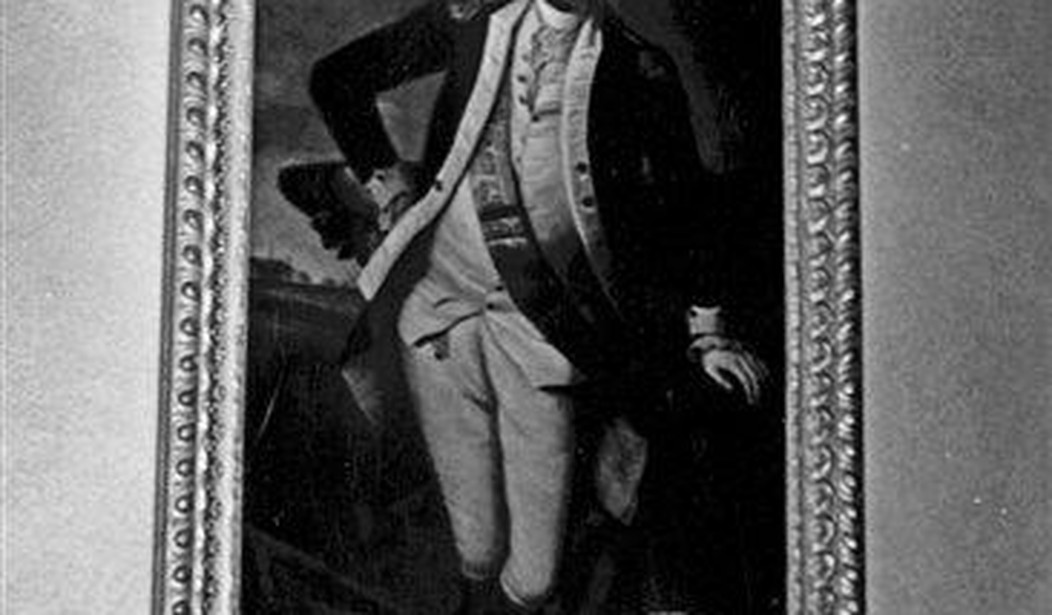Mark my words. The left will demand the statutes of General George S. Patton that are seen throughout the country, including those erected at the United States Military Academy at West Point and in Boston, to be taken down. There will be several reasons given for this lunacy though the totality of the grievances provides no compelling reason to tear down the monument honoring one of America’s greatest military legends.
Genera Patton was one of America’s greatest military commanders of any age, distinguishing himself in Mexico, World War I, and especially World War II where he fought in Africa, Sicily, and then led the Third Army through France, Luxembourg, Belgium, Germany, Austria, and finally Czechoslovakia.
From the time of his childhood, all Patton ever wanted to be was an American Soldier. Patton was not without his faults, as none of us are. He was brash with his language, sometimes too emotional, and held racial prejudice (though he also was the first American Army commander to integrate black troops with white units in World War II).
However, the left will demand Patton’s statue to come down as he represents masculinity, the American Warrior spirit and the power of prayer, and was one of the first American officials to warn of the dangers of communism. They will instead use the following excuses to cover their misdeed:
Patton came from a long, distinguished military history that included having a grandfather and great uncle who fought and died for the Confederacy in the Civil War, the grandfather being killed at the Third Battle of Winchester and the great uncle being mortally wounded the year before at Gettysburg.
The left will also use the excuse of Patton’s racism to try and bring his statue down. This stain on Patton’s character is true, and also quite true of many on the contemporary left. However, the charge being what it is, it must be weighed on its totality and compared to the whole man.
Recommended
After the greatest experience of his life – World War II – had ended, as well as a lifetime of probable traumatic brain injury (TBI), Patton was bitter and lost. He longed to fight and was a lonely voice against the evils of the Soviet Union. Sadly, he also made many anti-Semitic comments.
Few have written on the evils of anti-Semitism in these pages more clearly than I. To the consternation of some, I even condemned the officer corps of the German Army in World War II when discussing the Myth of the Clean Wehrmacht.
Patton was a contradictory and often violent man; his very worst qualities were also his very best.
He is the total soldier, effective, sometimes brutal, sometimes deeply compassionate and moved to tears by seeing his wounded, and often humbly religious when addressing God as “Sir” in his prayers.
In debating a man’s historical legacy, and not their personal salvation, the totality of their deeds is paramount. Without question, America and the world are a better and safer place because of George Patton. Whenever the American Army was in trouble in Africa, Sicily, Normandy, or in the Bulge, it was Patton who was called upon. His efforts were so successful that even the Nazis said Patton was the greatest American general and the only one who struck fear in them.
Leaving Patton’s statues up is an inspiration as well as a warning, a warning that great men are capable of sins, and indeed all of us are. The left should remember to “Let he who is without sin cast the first stone.” Maybe we should have no statues of anyone standing but if we should, great patriots like George Patton should be among those that always remain.
Patton’s statue should stand forever, a reminder of a very imperfect man who did extraordinary things and made millions of lives better, with the gifts God gave him.
Any future attempt to erase George Patton from American collective memory should be fought with the same passion and tenacity he brought to fields of battle.

























Join the conversation as a VIP Member